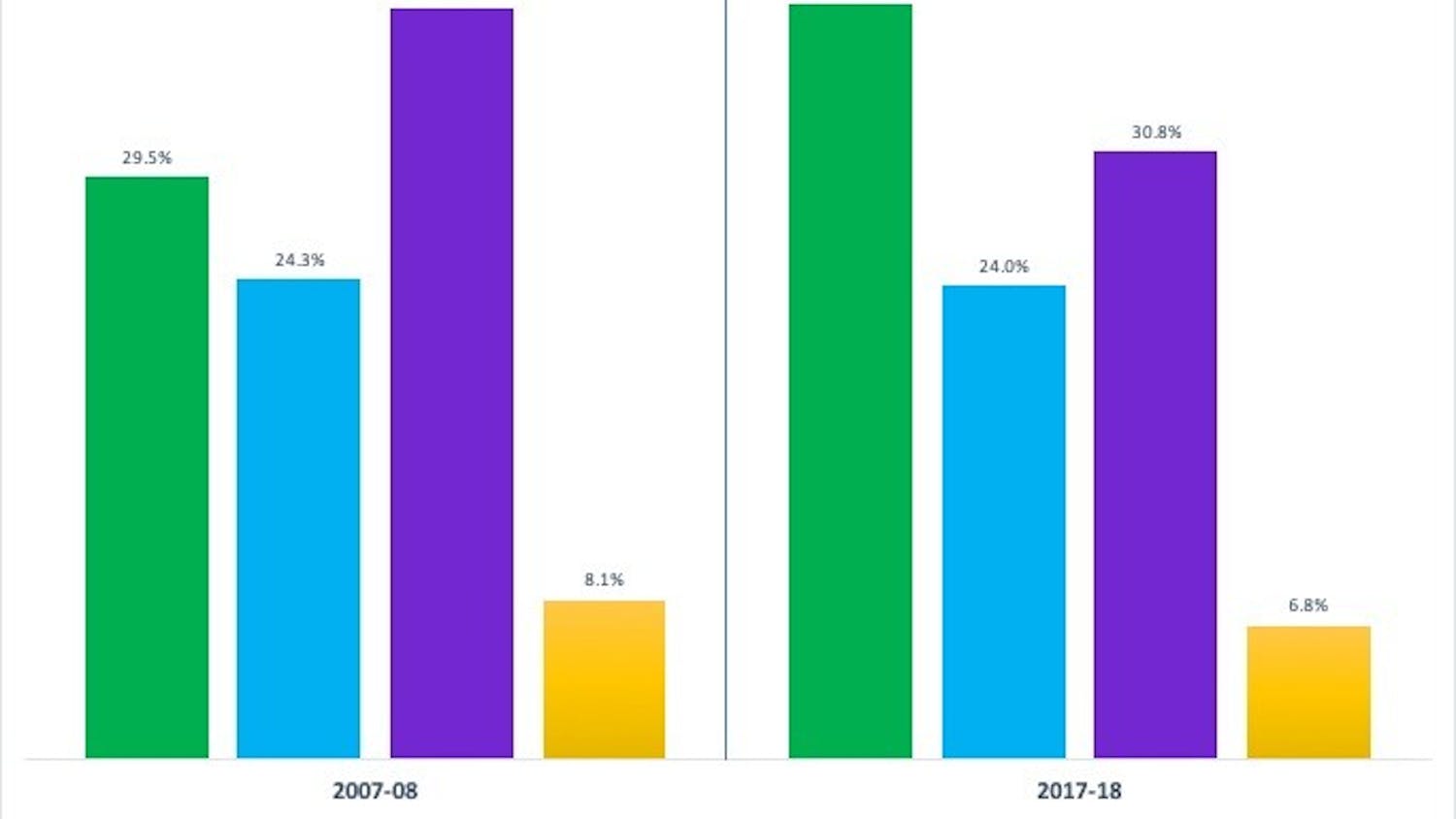Two Dartmouth professors have been awarded Guggenheim Fellowships, an annual award recognizing achievements in the arts and sciences. The professors — earth sciences professor Mukul Sharma and geography professor Frank Magilligan — will receive grants to continue their research.
Funded by the John Simon Guggenheim Memorial Foundation, each application for the Guggenheim fellowship is reviewed by experts in the applicant’s field of study, who are all former fellows. This year’s class of 175 fellows, selected from a pool of about 3,000 applicants, was announced on April 8.
Past Dartmouth winners of the fellowship include choreographer, director of the Dartmouth Dance Ensemble and theater lecturer John Heginbotham, associate anthropology professor Sienna Craig and comparative literature professor Michelle Warren, who each received the award in 2018.
The awards are typically for novelists, poets and playwrights, Magilligan noted. Having been rejected from the fellowship in the past, Magilligan credited Charlotte Bacon, director of Dartmouth’s grant proposal support initiative, in giving him advice to rewrite his proposal “in a way that would resonate” in a more humanities-focused fellowship competition.
Sharma’s fellowship research will investigate a novel way to combat climate change, while Magilligan will study the social and political consequences of dam removal.
Sharma’s proposal focuses on extracting carbon dioxide from the atmosphere by depositing clay dust on the surface of the ocean. He said that the idea came to him about five years ago as a thought experiment on how to combat climate change, which he then developed into a earth sciences department presentation.
He said that he applied for the fellowship because of his belief in the urgency of climate change, which he felt that other solutions, like “transitioning into a low-carbon economy,” would not address promptly enough. Sharma said that when it comes to climate change, “the problem is now here, and we need to solve it now,” and that his project could potentially contribute to a faster solution.
The project will begin with in-lab experiments and progress to larger-scale trials near Martha’s Vineyard and larger ocean areas. Sharma said that each stage is expensive and will require a large amount of funding from different sources to become a reality.
“I want to find as much publicity as possible so that I can get this work to move forward as quickly as I can,” Sharma said.
As part of her senior thesis as a research assistant for Sharma, Rachel Rubin ’20 conducted experiments with Dr. Erik Zinser, associate professor of microbiology at the University of Tennessee, to test whether clay deposition could have negative impacts on photosynthetic life forms.
Sharma said that Rubin’s research was important in assessing whether the solution would “impact life in a negative way.” Her research focused on testing for any harmful impacts of clay minerals on a certain type of photosynthetic bacteria found in the ocean and vital to its ecosystem.
Of Sharma, Rubin said that he is “kind and encouraging” and that he “cares a lot about the project, and it really shows.”
“He’ll sort of mesh different disciplines and come up with some new, really interesting idea,” Rubin said.
Magilligan’s fellowship research will build off his previous research with geography department chair Chris Sneddon and geography professor Coleen Fox on the social dimensions of dam removal in New England.
The collaborative project involved going to public meetings and speaking to people about their views on dam removal, and was previously funded with a National Science Foundation grant.
Magilligan’s research focuses on the biophysical impact of dam removal, but he said that an encounter with a failing dam in Keene, New Hampshire. first helped him to consider other dimensions. While the owner of the Keene dam wanted to have it removed, she faced opposition from the town based on the dam’s “historical significance.”
“This was such a no-brainer that this dam should have come out, but it took 11 years from the moment the owner wanted to remove the dam and the dam finally [coming] out,” Magilligan said.
He said that his work will focus on “not just dam removal, but other forms of river restoration and how they are embedded within politics, the role of science and cultural and value systems.”
In previous work, Magilligan has written about the different values that people can ascribe to rivers. He said that decisions about dam removal often reflect those values.
“To some stakeholders, restoring salmon to rivers is fundamentally important,” he said, “and one of the best ways to do that is to remove dams, but the consequence of that is that you might be removing something that people are attached to.”
Sneddon said that Magilligan was “tremendously well-deserving” of the award and “a joy to collaborate with and do research with.”
“In our world, both physical and human geography are really important, and I think [Magilligan], even though he is a biophysical scientist, has always appreciated a great deal what the social sciences have to offer,” Sneddon said, adding that the award is “a really nice culmination to what’s been for [Magilligan] a really long and productive career.”


